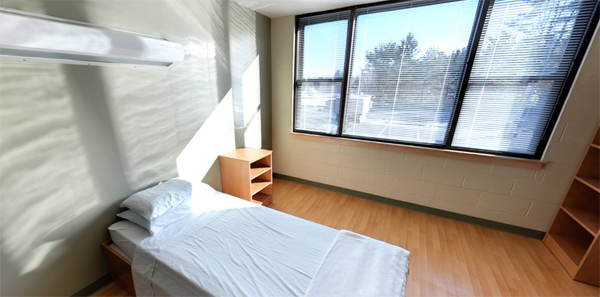

Too often, those with mental health problems turn to self-medication to alleviate their symptoms. Although this may provide temporary relief for some, it usually makes mental health problems more severe and difficult to treat. In addition, those individuals with untreated mental illnesses are more likely to relapse into substance abuse.
The Co-Occurring Disorders Unit (CDU) at Harrington is dedicated to the treatment of each individual’s needs in a proactive, supportive and therapeutic environment.
The goal of our program is to improve our clients’ emotional, behavioral, social and physical well-being. We look forward to working with our clients in their recovery.
Co-occurring is the term used when an individual has both a mental illness and a substance abuse problem. Co-occurring disorder may range from mild depression because of binge drinking, to bipolar disorder becoming more severe as a result of an opioid addiction (nami.org).
Click to watch: Worcester News Tonight talks about the new CDU (December 12, 2016)
The inpatient Harrington CDU provides treatment for those individuals with mental health issues that are compounded by substance use. Psychiatric and substance use disorders will be treated by a combination of both medication and therapy.
Substance abuse treatment includes both detox services and medication-assisted management of opioid addiction. Recovery services will be provided in a safe structured environment.
Our clients with opioid addictions may be either detoxed or started on Suboxone (buprenorphine) to help prevent relapse from opioids
obtained on the street.
The average stay for our clients is seven to ten days. After discharge, the client will be referred to Harrington outpatient services, including our Partial Hospitalization Program, for the continuation of treatment.
• Psychiatric assessments
• Medication management
• Psycho-educational groups
• Addiction educational groups
• Individual treatment by addiction counselors
• Family meetings
• Case management
• Aftercare planning
• Coping skills
• Occupational therapy
• Sensory therapy
• Relapse prevention strategies
• Introduction to the 12 Steps
• Exercise group
• Pet therapy
• Spirituality
• AA /NA meetings
© 2024 UMass Memorial Health